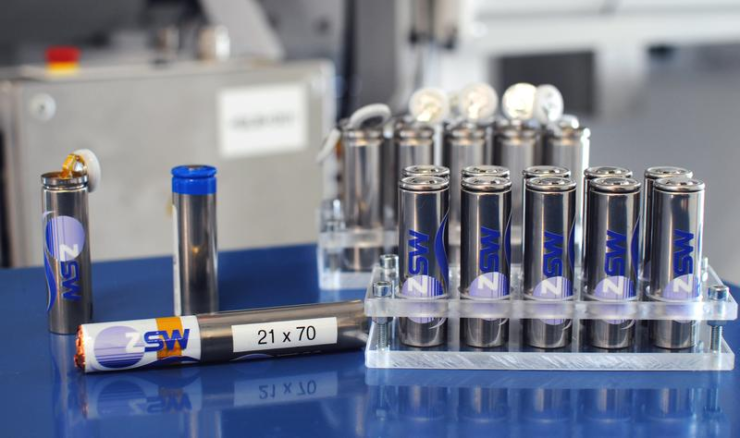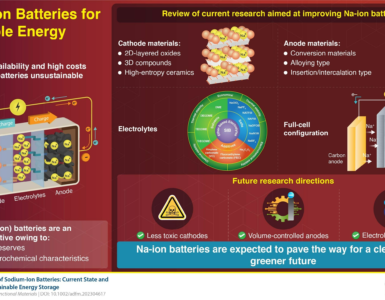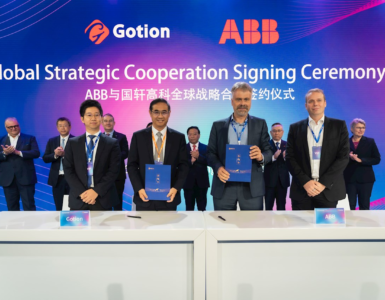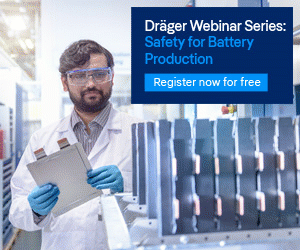ZSW produces water-based electrodes and cells on a pilot scale – Lithium-ion batteries – New, environmentally friendly process for the industrial production of nickel-rich cathodes.
High-performance lithium-ion batteries are all made of materials with a large proportion of nickel in the cathode mass in order to increase energy density. Toxic solvents and fluorine-containing chemicals are used in production.
The Center for Solar Energy and Hydrogen Research Baden-Württemberg (ZSW) has now started the industrial production of cathodes with environmentally friendly and inexpensive alternatives: the researchers in Ulm replaced the toxic solvent NMP with water and found a substitute for binders containing fluorine.
Subsequently, the production of the nickel-rich cathodes with high specific energy and longevity was successful on a pilot scale close to production. The electrodes produced in this way were installed in type 21700 round cells. After 1.
🔥 What about we co-host a webinar? Let's educate, captivate, and convert the battery economy!
Batteries News is the global go-to online magazine for the battery industry, we can help you host impactful webinars that become a global reference on your topic and are an evergreen source of leads. Click here to request more details
In recent years there have been significant advances in the laboratory-scale water-based fabrication of electrodes containing nickel-rich active materials. However, there has not yet been any proof of feasibility on a near-production scale. The ZSW has now succeeded in doing this.
Prof. Dr. Markus Hölzle, head of the ZSW division in Ulm, said:
Our work should improve the production of electrodes in lithium-ion batteries and make them environmentally friendly without impairing the performance of the batteries.
“The substitution of toxic solvents and non-biodegradable fluorine-containing chemicals plays an important role here.”
Developed a cost-effective process suitable for industrial use
As part of the research work, the ZSW replaced the standard solvent NMP and the binder mixture PVDF with an aqueous formulation. In addition to the positive ecological aspects, this also reduces the costs of cell production. The starting point was my own work on a milliliter scale.
Now, for the first time, the researchers have also been able to successfully produce electrodes around 100 meters in length. For this purpose, the pre-developed materials were used on a kilogram scale. This so-called pilot scale is considered a key step in the transfer from laboratory (milliliter) to large-scale application (cubic meters or tons).
With the 100 meter long electrode strips, ZSW was also able to produce fully-fledged cylindrical battery cells in the 21700 format for the first time. The car manufacturer Tesla uses this cell format in its Model 3. These batteries are also suitable for use in e-bikes. The transfer of the process to other cell formats will follow.
The batteries manufactured using the new process contain a highly active cathode material with 83 percent by weight nickel and graphite on the opposite side, the negative pole or the anode. The cells could be successfully charged and discharged 1,000 times at 25 degrees Celsius before they fell below the energy content of 80 percent. Expressed in kilometers, this would correspond to at least 200,000 kilometers with today’s typical battery sizes in electric vehicles.
Dr. Margret Wohlfarth-Multiens, who was responsible for the work as department head, said:
With our new production process, we are significantly reducing the ecological footprint of lithium-ion batteries.
“After years of using water as a solvent for the anodes, even on an industrial scale, we have now managed to do the same with the cathode materials. In addition to eliminating the need for toxic solvents, the use of water also makes it possible to use non-fluorinated binders, which significantly simplifies battery recycling.”
Lithium-ion batteries are the central building block for the transition to electromobility. Their performance is determined almost exclusively by the materials used. In order to bring innovations to the market, developments from the laboratory scale have to be scaled up to the pilot scale. Science speaks of pilot scale when all process steps meet near-series requirements.
The work was carried out as part of the DigiBatt Pro 4.0 project funded by the Federal Ministry of Education and Research.
About the ZSW
The Center for Solar Energy and Hydrogen Research Baden-Württemberg (ZSW) is one of the leading institutes for applied research in the fields of photovoltaics, regenerative fuels, battery technology and fuel cells as well as energy system analysis. Around 330 scientists, engineers and technicians are currently employed at the three ZSW locations in Stuttgart, Ulm and Widderstall.
There are also 100 scientific and student assistants. The ZSW is a member of the Innovationsallianz Baden-Württemberg ( innBW ), an association of 12 non-university, business-related research institutes.
READ the latest Batteries News shaping the battery market
// Lithium-ion batteries: New, environmentally friendly process for the industrial production of nickel-rich cathodes, March 28, 2023








